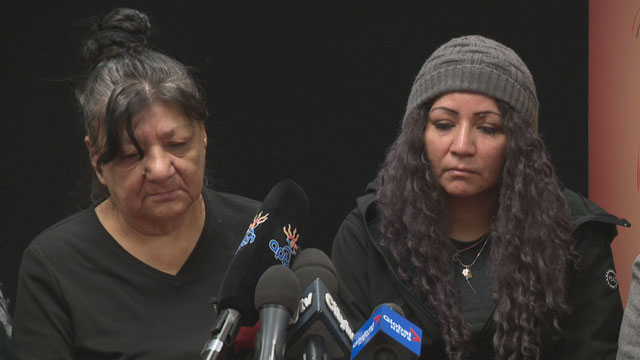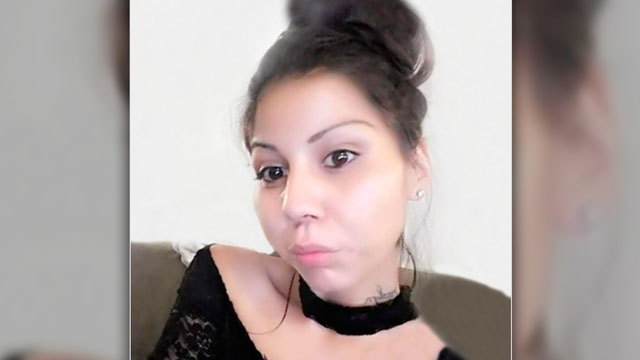
The family of a young Ojibway woman is searching for answers after what they call suspicious circumstances surrounding her death.
Jaeda Vanderwal was found in a Winnipeg train yard on Jan. 5 after being hit by two different trains.
To date, family says they received little information surrounding the 22-year-old’s death.
“We were not told what happened [or] where this took place…communication has been with the medical examiner’s office. No Winnipeg police has made contact with our family although we have made several attempts to contact them,” Vanderwal’s aunt, Elyssa McIvor, told reporters at a press conference Thursday.
Police believe Vanderwal climbed a fence and walked along the railway tracks and around some vacant buildings in the area. They say she was struck when she was walking back.

(Police said Vanderwal, 22, died after being struck by two trains on Jan. 5 in Winnipeg. APTN)
A train operator stopped and attempted to administer first aid.
She was then transported to hospital where she later died.
Cst. Jay Murray says surveillance video and tracks in the snow suggest she was alone.
“Our investigation until this point has led us to believe that it is a non-criminal death,” said Murray.
“We believe that for whatever reason Jaeda walked down that train line and was struck by a train. The cause of death has been determined to be blunt force injury with hypothermia being a contributing factor.”
However, the family is not satisfied with the investigation.
Natalie Beaulieu believes others may be involved in her daughter’s death.
The two last spoke via video chat the morning Vanderwal was found.
Little is known about her whereabouts before she was found around 9 p.m.
“There’s so many unanswered questions that it just makes me very irate…it really boggles my mind,” Beaulieu said wiping away tears.
Vanderwal was found unclothed.
Police believe “paradoxical undressing” – a symptom of hypothermia where a person believes their temperature is burning up, led her to remove her clothing after being hit by the first train.
Her clothing was found along the tracks and some items were found near a fence.
“This is a tragedy, and I think that any time a family member loses a loved one they search for answers. They want to know what happened, what led up to the circumstances and how did their loved one get injured,” said Murray.
“We certainly sympathize with why the family has these questions.”
Notified family
Members from Manitoba First Nations Police Service notified family, who live in Sandy Bay Ojibway First Nation, the day after Vanderwal’s body was found, which Murray said is common procedure for people who live outside of city.
Since then the family says they have been struggling to speak with someone directly from the Winnipeg Police Service despite numerous requests.
McIvor criticized the way the force has handled her niece’s case saying there should be more compassion for families who are struggling.
Vanderwal lived with an opioid addiction after years of growing up in the child welfare system.
“Jaeda deserved better treatment from the Winnipeg police. Instead, from the beginning, she was [treated] like many of our men and women who are thought of as just another Indigenous person who has had substance abuse problems that lead to their untimely deaths,” said McIvor.
“We are more than that; we are human beings, and yet we are denied the most basic human rights and civilities.”
Despite Vanderwal’s struggles the family says she was always optimistic and tried to provide a better life for her two-year-old daughter.
The family was planning to meet with the chief of police Friday.
Murray says if additional information is brought forward police are willing to reopen the investigation.









